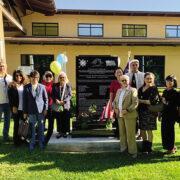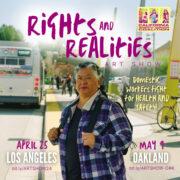I HAD an interesting exchange on social media with a good friend, over the issues of “colonial mentality” and “assimilation.” My friend stated, with a hint of sarcasm, “Forgive me If I seem to relate more to the American culture and way of life unlike some of my close friends that came to America when they are fully grown and find it difficult to assimilate, I did not have the luxury of bringing the colonial mentality with me to use as a crutch. I don’t think myself as a minority but simply an American.”
Sensing the patronizing tone, I responded, “By the way a ‘colonial mentality’ is not a ‘luxury.’ It is a manifestation of an inferiority complex.”
It was then that I recalled a speech I delivered before FilAm students in Maryland in the mid-90s, on the subject of “assimilation” and the seeming conflict between being “Pinoy” and being “Kano,” an issue that today’s young FilAms may still be struggling with.
(Speech delivered at the University of Maryland at College Park before members of the Filipino Cultural Association, a student organization)
When our family came to the United States, our children had many of the wonderful traits that a traditional Filipino upbringing develops. Respect for elders. A closeness with members of the family, including those several layers removed. Pride in the country of their birth.
Oh, yes, they also had many of the unhealthy values that the same Filipino upbringing
infects you with. They thought that doing manual labor was demeaning. That waiting at tables, washing dishes and doing the laundry was only for the lowly. That it was normal to be served hand and foot by maids. That they were more equal than others and could jump the line or get ahead of the pack by pulling strings.
One of the best things that happened to our children in America, aside from the education that they received, was a reorientation of values: learning the dignity of honest labor and the virtue of self-sufficiency, and taking pride in getting ahead based on one’s talents and skills, rather than on padrinos and connections.
Yes, all of our children waited at tables while going through college. And they are proud of it.
For many years, we lived on the eastern shore of Maryland, in the small town of Cambridge, a crab-oyster-corn-and-soya community. There were only two Filipino families in that town: mine and that of my elder sister. The children went through high school with American schoolmates and neighbors. Their friends would spend weekends at the house and were exposed to our Pinoy ways, as we were exposed to theirs.
The result was that their American friends learned to eat rice and native Filipino dishes and they also learned to eat with fork and spoon. To this day, many of these young Marylanders still visit us in San Francisco and are treated like members of the family – for such is the Filipino way.
Our children, on the other hand, all learned to work with their hands, to do things for themselves, to stand proud and confident alongside their American friends, to compete with them on equal terms in academics and sports, and to be every bit the teenage Americans that their new environment had made of them.
Over time, our four children ceased being the young Filipinos that we brought over many years ago. They changed. Today, they are a shadow of what they were back in the Philippines.
What have they become? Suffice it to say that how they define themselves is not as important as the upright, respectful, self-confident, affectionate individuals that my wife and I know them to be.
We certainly do not regret that they are different from their mother and myself and different, too, from their childhood friends back in the Philippines. This is what the development of the species is all about.
On the other hand, we are glad that in a multiethnic and multicultural society such as this, they recognize that they are fortunate to have Filipino roots to reach back to and American dreams to reach up for.
I would like to believe that you who are members of the Filipino Cultural Association have metamorphosed in a similar way. I advise you not to feel any guilt for not being as Pinoy as your old folks nor feel any inferiority for not being as “Kano” as your Anglo friends.
I encourage you to enrich your lives with the finest portions of the American pie. In science and technology, in culture and the arts, in business and trade, and in its relations with the rest of the world there is much to be admired and learned in America. Those of you who are Americans should stand proudly as citizens of this great country.
At the same time, I suggest that you immerse yourselves in Philippine history, culture and traditions so that you can also speak proudly of your antecedents.
In this regard, take pride and participate in the celebration in 1998 of the first centennial of the declaration of Philippine independence – a courageous act undertaken in the face of threats from colonial powers, Spain and the United States.
Take pride, too, in the fact that natives of Las Islas Filipinas were crossing the Pacific Ocean to the New World over half a century before the Mayflower traversed the Atlantic, and that Filipinos, especially those in California, played a role in the making of these United States.
There is one last thing that I would like to suggest to you. In the same manner that, through the Filipino Cultural Association, you are nurturing in America the best part of your Filipino-ness, I urge you to visit the land of your parents and to introduce back home the best of your American-ness.
And never try to be what you are not, nor bewail what you cannot be. Don’t waste your time pondering whether you are American enough or Filipino enough. To paraphrase that advertising slogan for the US Army – simply be the best you can be.
([email protected])




